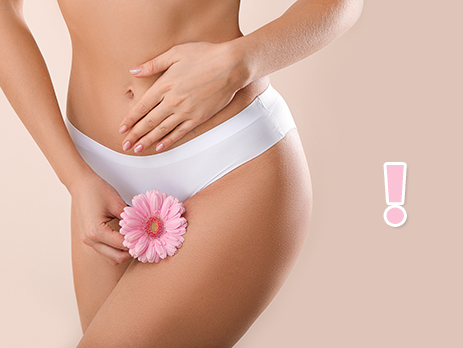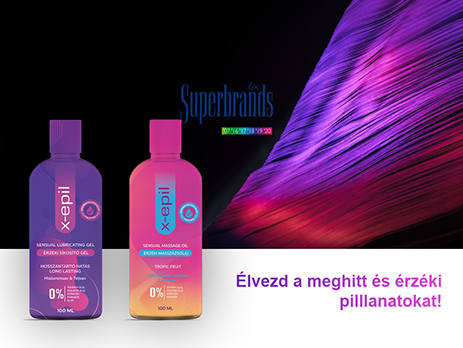Seven important points of intimate hygiene
Many people treat the topic as taboo, but intimate hygiene is part of our health and everyday life, and we should talk about it, not just at the gynaecologist. We are constantly concerned with the skin of our body and face, because it is in the front of our minds, but we must also pay the same, or even more, attention to the parts of our body that are ‘hidden’. Regular care of intimate parts of the body is part of being well-groomed and clean. In our next article, we’ve put together seven basic hygiene questions that every woman should be aware of, if only for the sake of health!
1. Forget the soap
Soap used to wash your hands is not suitable for cleaning your intimate body parts! Why? Because basically our skin has a pH of 5.5, while the area around our genitals is more sensitive than any other part of our body. The chemistry of the vagina is slightly acidic to keep harmful microbes away, so if you wash with the wrong product it can easily become alkaline, which can lead to vaginitis and other infections. A healthy vaginal pH ranges from 3.8 to 4.2, so choose your cleanser with this in mind.
The vagina has the ability to keep itself clean, so refrain from introducing any products into the vagina as they can be harmful to the vaginal flora. Always wash only the vulva, vagina and labia with an intimate cleanser with an acidic base.
2. Use intimate wet wipes
Ideally, you should wash several times a day, but you obviously don’t have the opportunity to do this after every toilet use, so you can use wet wipes for intimate cleansing in between. But watch out! Only use the products that are designed for this purpose, not all wet wipes are suitable for intimate areas.
3. Regularly change liners
If you use daily liners or menstrual pads, try to change it at least every 2-3 hours to avoid fungal infections from sweating. The longer you use a pad, the less benefit it has. And if you have sensitive skin or are prone to allergies, make sure you choose a fragrance-free version. The same goes for different types of tampons.
4. Pay attention at the pool and beach!
Protect yourself from bacteria and dehydration with intimate hygiene creams, gels or other products that support healthy flora. Specialists say it’s worth using before every visit to the pool or beach to reduce the chance of infection.
5. Comfortable underwear is half of intimate health
When choosing your underwear, consider not only the stylish or pretty look, but also comfort. Pure cotton underwear is best, but if you insist on synthetic materials (e.g. elastic lace), buy underwear with a cotton insert.
6. Soft towels yes, sponges no!
After shower, use a towel made of natural materials! Remember that moisture is good for fungal infections! The vagina is a thin soft skin surface, so sponges and gloves can cause minor injuries. It is enough to use your hands when washing.
7. If necessary, consult a specialist!
If, despite all precautions, the vaginal balance is upset, there is usually a change in the amount, consistency, colour and smell of normal vaginal fluid. This does not mean that you have caught an infection. The female body may react in this way due to stress, a change in mental state or simply before menstruation. Of course, it is never a bad idea to consult a specialist before trying to treat it at home.
Find out more about X-Epil Initmo products, click here!




